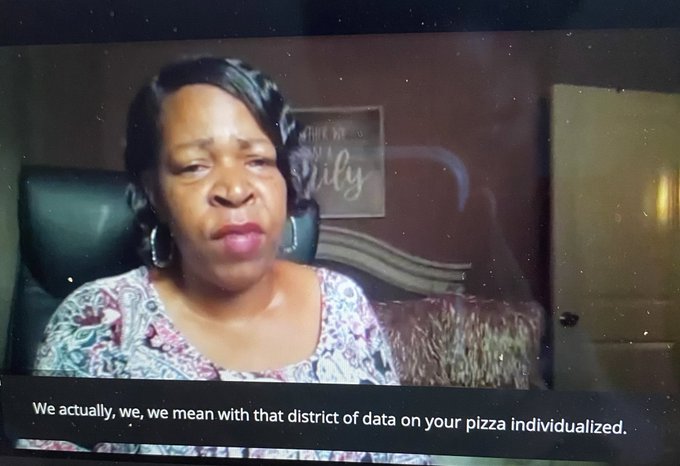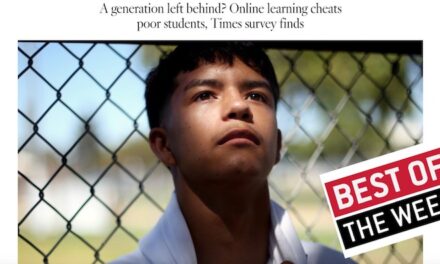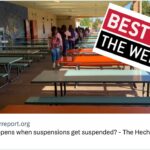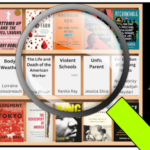‘Don’t write about us until you’ve talked to us’ & other impassioned advice to education writers after a parent engagement session at last week’s EWA conference. (Reprinted with permission.)
By Sarah Carpenter
Dear Education Writers Association:
I was honored and humbled to be invited to attend this week’s conference of the Education Writers Association and to address questions centered around the school and family relationship during the time of COVID. I want to thank the organizers for inviting me–a Black grandmother of public school children from North Memphis–to speak. Folks like me typically have to fight to be heard.
In fact, that’s the very reason I started an organization called The Memphis Lift a few years ago to help give voice to the desires and demands of parents and grandparents like me when it comes to our chronically failing public education system. That is also why I am the founding member of the Powerful Parent Movement made up of other city-based movements like our own around the country.

Above: Carpenter at last week’s virtual EWA conference. Image via Vesia Hawkins.
Low-income families of color have something to say when it comes to public education in America. These public education systems fail our families and have done so for generations trapping us as second class citizens. How is it that we have figured out how to send a man to the moon or travel around with miniature computers in our hands, but we have yet to figure out how to teach all our children how to read. If you come from where I do, it almost feels like a failure of will, at best. At worst, this failure feels intentional.
So, while I certainly do appreciate the opportunity to talk about school and family relationships during the time of COVID, I wish we had had more REAL TALK instead. That is why I am writing this “open letter” to all you education writers out there. I hope you’ll read it and I hope you’ll let me know what you think about it.
Low-income families of color have something to say when it comes to public education in America. These public education systems fail our families and have done so for generations trapping us as second class citizens.
Here’s what I really want you all to know:
-
Don’t write about us until you’ve talked to us. So many times, I see everyone but us talking about us–the unions are quoted talking about what parents want and what kids need, administrators too, also people from Harvard and other fancy institutions with long names. You want to know what we want and think about education? Ask us. I promise we may not have been able to go to Ivy League schools, but we were born with Ivy League brains and, better than that, we actually know what’s going on with our kids and in our schools.
-
Treat us as you would treat all other sources. Sometimes I read the coverage and I get so mad because it’s easy to see that many education writers don’t think we have minds of our own. We are asked about our funding, who leads us, and slot us into unfair labels. Writing articles this way keeps dangerous stereotypes about Black and Brown people going. Either stop doing it or make sure you’re covering everyone equally.
-
Understand that you are powerful and, as a result, you are either a part of the problem or a part of the solution. The media was so important to the civil rights movement helping its audience understand that there was a crisis and portraying the plight of Black America with humanity and urgency. When you write about public education and you see that a district or a school has failed to teach a majority of children to read for decades, do you write about this as someone who sees a terrible crisis? Do you understand this to be a systemic failure of the largest proportions and address it with this seriousness?

Above: Carpenter heads Memphis Lift, a parent advocacy group that won national attention during the 2019 Democratic primaries.
I am so grateful to have been invited to join you all yesterday and I’m grateful to the many wonderful education writers who have covered the work of the Powerful Parent Movement with a commitment to creating a better America, one education news story at a time.
I am hopeful that these suggestions will help those of you still struggling to figure out how to join us parents in being part of the solution.
Yours,
Sarah Carpenter
Related stories from The Grade:
Reopening coverage should focus on students’ needs
No, asking questions about remote learning isn’t ‘teacher bashing’
8 ways to make education journalism more student-centered
Education and race: 9 journalists reflect
How to cover a protest (about late 2019 coverage of a Warren campaign event)
Teacher strike coverage illustrates need to amplify parent, student voices
New York City 1968 wasn’t a teachers strike; it was a community insurrection.
ABOUT THE AUTHOR

Sarah Carpenter
Sarah Carpenter is the executive director of Memphis Lift and a founding board member of the Powerful Parent Movement @wearePPM. You can follow her on Twitter at @LadyTenn














